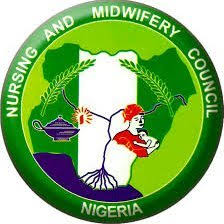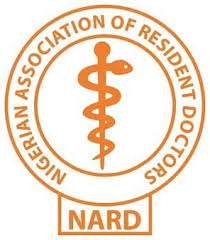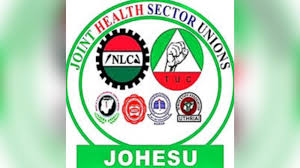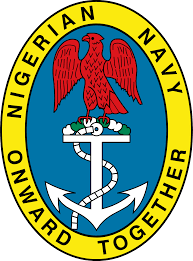FEDERAL MINISTRY OF HEALTH 62ND NATIONAL COUNCIL ON HEALTH (NCH) MEETING HELD AT THE EVENT CENTRE, ASABA, DELTA, STATE, 9 TH – 13TH SEPTEMBER, 2019 COUNCIL COMMUNIQUE
OPENING
- The 62nd regular session of the National Council on Health (NCH) Meeting was held at the Event Centre, Asaba, Delta State from the 9 th – 13th September, 2019. The National Council on Health, as provided for in the National Health Act (2014), is the highest policy making body on matters relating to health in Nigeria. The membership comprises the Honourable Minister of Health who is the Chairman of the Council, the Honourable Minister of State for Health, State Commissioners for Health of the 36 States, and the Secretary of Health & Human Services Secretariat, FCTA. The 62nd National Council on Health was chaired by the Honourable Minister of Health, Dr. E. Osagie Ehanire MD, FWACS.
- A total of 821 delegates participated from the Departments, Agencies and Parastatals of the Federal Ministry of Health, State Ministries of Health and the Health & Human Services Secretariat of the Federal Capital Territory Administration, Abuja with the exception of Jigawa State that was absent. Others in attendance were members of the National Assembly, representatives of Federal Ministries of Education, Water Resources, Communication, Environment as well as , Population Council, Bureau of Public Enterprises, Nigeria Governors Forum, Federal Competition and Consumer Protection Commission, Department of State Services and Medical Corps of the Nigeria Army, Nigeria Navy, Nigeria Police, Federal Road Safety Corps, Nigeria Correctional Service, Nigeria Customs Service and the Nigeria Security & Civil Defence Corps. There were also delegates from Development Partners, Civil Society Organisations, Private Sector Organisations, Health Professional Associations and Health Professional Regulatory Bodies.

TECHNICAL SESSION
- The 62nd NCH was preceded by a two-day Technical Session under the chairmanship of the Permanent Secretary (PSH), Federal Ministry of Health, Mr. A. M. Abdullahi. During the Technical Session held from 9 th – 10 th September, 2019, there were Seven (7) technical presentations on the theme and sub-themes and Six (6) information presentations while Sixty-Five (65) memoranda were considered. Out of this total number of memoranda, Thirty-Four (34) were from the Honourable Minister of Health and Thirty-One (31) were from the State Commissioners for Health and Secretary for Health and Human Services Secretariat, FCTA. Following consideration of the 65 memoranda, The Technical Committee recommended 26 for approval and 24 for noting while 15 were stepped down/withdrawn.
COUNCIL SESSION
- The Council meeting which held on the 12th and 13th September, 2019, with the theme: “Consolidating the Journey towards Achieving Universal Health Coverage” and sub-themes - “Operationalisation of the Second National Strategic Health Development Plan”; “Framework for the Acceleration of Maternal and Child Health in Nigeria”; “Improving Health Outcomes through Programme for Result”; “Basic Health Care Provision Fund: A Road Map towards Achieving Universal Health Coverage”; “Health Emergencies, Outbreak, Preparedness and Response” and “Curbing the Growing Menace of Substance Abuse among Women and Young People” commenced with an opening ceremony.
- The Honourable Commissioner for Health, Delta State, Dr. Mordi Ononye, welcomed all Council members and other delegates on behalf of the Delta State Governor. This was followed by goodwill messages delivered by Officer in Charge of WHO, Chief of Health of UNICEF, Honourable Minister of Environment representative, United States of America International Development (USAID), Health Reforms Foundation of Nigeria ( HERFON) and a representative of the Chief Medical Directors of Federal Hospitals. The Honourable Minister of State for Health, Senator (Dr.) Olorunnimbe Adeleke Mamora delivered his address.
- Following the address of the Honourable Minister of State for Health, Sen. Dr. Olorunnimbe Mamora, the Honourable Minister of Health, Dr. Osagie Ehanire, delivered the keynote address titled “Consolidating the Journey towards Achieving Universal Health Coverage”. His address centred on all that have been put in place collectively by all stakeholders in the health sector in terms of national health sector instruments and interventions for Nigeria to work towards achieving Universal Health Coverage (UHC) as well as the Sustainable Development Goal (SDG) targets especially through the strengthening of our Primary Health Care System as well as the secondary and tertiary subsystems. He further elaborated on the instruments and interventions to include the signing of the National Health Act (2014), the development of the National Health Policy (2016) and the Second National Strategic Health Development Plan (2018-2022) to operationalise the Policy as well as the rolling out of the implementation of the Basic Health Care Provision Fund among others. He thanked all the health sector stakeholders especially the states and development partners for their unwavering commitment demonstrated in putting up all that are required for this journey and further urged that all must continue to work assiduously to consolidate on the journey towards achieving UHC. He further highlighted the progress made so far in implementing some key health initiatives such as Saving One Million Lives Programme for Results, Basic Health Care Provision Fund, Nigeria State Health Investment Project, polio eradication and containment of Public Health Emergencies as well as the status of the operationalisation of the Second National Strategic Health Development Plan among others.
- The 62nd National Council on Health was thereafter declared open by the Executive Governor of Delta State, His Excellency, Senator (Dr.) Ifeanyi Okowa. This was followed by the launch of the Roadmap on Accelerated Reduction of Maternal and Neonatal Mortality in Nigeria.
- At the end of the opening ceremony, the Permanent Secretary, Federal Ministry of Health, Mr. A. M. Abdullahi gave the vote of thanks.
- The Council meeting commenced with the adoption of the agenda, introduction of members in Council and setting the procedure for the meeting by the Honourable Minister of Health.
- The Chairman of the Technical Committee, the Permanent Secretary, Federal Ministry of Health, Mr. A. M. Abdullahi presented the report of the Technical Committee to the National Council.
- The summary of all the presentations made at the technical session was done by Prof. Clara Ladi Ejembi. Presentations were also made on Polio Immunisation and New End Game Strategy and Basic Health Care Provision Fund. The Head, Monitoring and Evaluation, FMOH, Mr. Bolaji Oladejo presented the status of implementation of 61st NCH resolutions. Council appreciated the presentations, recommendations and the feedback by participants at the Council session.
- The proceedings and the status of implementation of the 61st NCH were adopted as amended by the Council.
RESOLUTIONS
- Following extensive deliberations, the Council considered a total of 65 memoranda, approved 26, noted 24 and stepped-down/withdrew 15. Out of the approved 26 memoranda, 17 are under pillar one, 4 pillar two, 4 pillar three and 1 pillar five of the NSHDP II.
The following resolutions were approved:
- Federal, 36 states, FCT and health stakeholders should adopt the National Council on Health handbook as a guide on all National/State council on health matters in Nigeria;
- The Federal Ministry of health should continuously build the capacity of relevant officers at all levels on NCH matters including writing of good quality NCH/SCH memoranda;
- The ten-year compendium on NCH resolutions should be used as a score card for evaluating the impact of NCH meetings;
- All Departments, Agencies and Parastatals of the Federal and State Ministries of Health should develop Annual Operations Plans (AOPs) on or before 3rd quarter each year to inform annual budget development and to demonstrate the operationalisation of the NSHDP II;
- Federal Ministry of Health to continue monitoring the implementation of the NSHDP II at all levels and report progress to Council at every council meeting;
- Federal, 36 states and FCT should ensure Development Partners supporting the implementation of the NSHDP II key into the AOP regime as part of their support;
- Federal, 36 states and FCT should adopt and commence implementation of the National Health Promotion Policy (2019);
- All Development partners and Civil Society Organisations to endorse the Country Compact committing to the implementation of the Second National Strategic Health Development Plan;
- Federal Ministry of Health to commence provision of technical support to all states for the adoption and implementation of the National Roadmap for accelerating reduction of Maternal and Neonatal mortality in Nigeria at all levels and the designation of Desk Officers at both the Federal and State levels;
- Federal, 36 states and FCT should adopt and commence implementation of the National Noma Policy and three-year Noma action plan for Nigeria (2019 – 2021) and identify more centres for establishment;
- Federal, 36 states and FCT should adopt and commence implementation of the National Policy and Strategic Plan for Ear and Hearing Care (EHC) at all levels;
- State Coordinators for EHC activities should be appointed in all 36 State Ministries of Health and FCT to work with the Desk Officers on EHC at the Federal Ministry of Health;
- Federal, 36 states and FCT should adopt and commence implementation of the National Quality of Care Strategy for the reduction of Maternal and Neonatal mortality at all levels;
- The National Health Research Ethics Committee (NHREC) should establish an electronic platform (e-platform) for protocol submission and review;
- The NHREC should commence charging of 0.5% of grant value as fees for submission and review of protocols from researchers;
- Federal, 36 states and FCT should observe World Food Safety Day (WFSD) celebration and activities at all levels;
- All 36 States and FCT should establish Traditional, Complementary and Alternative Medicine Department/Boards to enhance coordination, regulation and control of TCAM practice and its products in Nigeria;
- Federal, 36 states and FCT should ensure appropriation of adequate funds for polio eradication and routine immunization to enable the polio eradication programme sustain its high impact interventions to finally achieve certification and a polio free status;
- 36 states and FCT should establish or reactivate State/LGAs Task Forces on Immunization (STFI/LGTFIs) to provide the needed coordination and oversight at the state and LGA levels as well as for Council to interface with Governors and Chairmen of LGAs with identified low commitment;
- Federal, 36 states and FCT should engage with development partners working in states to develop a transition mechanism by end of 1st quarter 2020 to cushion the effects of the global ramp down of polio resources which inevitably leads to lay off of several development partners agencies’ members of staff, as we move closer to certification;
- Federal, 36 states and FCT should adopt and commence implementation of the National Eye Health Policy at all levels and the designation of Eye Health desk officer to interface with the National Eye Health Programme;
- Federal, 36 states and FCT should adopt and commence implementation of Treatment Guideline for Child Eye Health at all levels of government by all stakeholders in the Nigerian Health Sector;
- All 36 states and FCT should establish State Drug Resistant Tuberculosis (DR-TB) treatment compliance teams;
- Federal, 36 State Ministries of Health and FCT Health and Human Services Secretariat should create Legal Units where none exists and create and institutionalize a MEDICO-LEGAL WEEK to create awareness on legal issues in health;
- Federal Ministry of Health should repurpose the national coordination architecture for health sector response to humanitarian crisis to provide normative guidance for processes geared towards improving health outcomes for populations within fragile settings;
- Federal, 36 States and FCT to improve health outcomes within fragile setting by strengthening and scaling up present response modalities;
- Federal Ministry of Health in collaboration with states and other relevant stakeholders should develop a national policy document for the health of refugees, migrants and internally displaced persons;
- Federal Ministry of Health should set up and operationalise systems to collaborate with the Ministry of Humanitarian Affairs, Disaster Management and Social Development in the provision of relevant technical support for health in humanitarian crisis, and disaster management;
- Federal, 36 State Ministries of Health and FCT Health and Human Services Secretariat to prioritize the provision of Water, Sanitation and Hygiene services in health facilities across the country by creating a budget line or increasing budgetary allocation for Water, Sanitation and Hygiene;
- Federal Ministry of Health should develop a policy that will guarantee free treatment for all Leishmaniasis patients, the inclusion of Leishmaniasis treatment into procurement plan/budget of the Ministry of Health for the purchase of drugs on annual basis and that development partners working in the State support the initiative;
- All State Ministries of Health and Agriculture and Rural Development, Departments and Agencies to create budget lines for training of staff as field epidemiologists in the Nigerian Field Epidemiology and Laboratory Training Programme;
- All tertiary and specialist hospitals in Nigeria should procure and ensure a continuous supply of basic antidotes in their hospitals;
- All tertiary and specialist hospitals should establish functional poison centres in all satellite hospitals or clinics that are affiliated to tertiary hospitals and in all states of the federation to improve access to medical management of poisoning;
- All states and FCT should establish data quality “control rooms” domiciled in their Primary Health Care Boards (PHCBs) for stakeholders to address challenges relating to service delivery on Distruct Health Information System (DHIS2) for the enhancement of decision making through the use of quality data;
- Federal Ministry of Health should disseminate the report of the 2017 National Health Accounts Study as validated by stakeholders from the 36 States and FCT;
- 36 States and FCT should adopt Workload Indicator of Staffing Needs (WISN) tool for the assessment of Human Resource for Health needs and distribution at all levels of the health sector;
- Council noted that 35 States of the Federation and FCT were represented.
- Council appreciated the support and hospitality extended to it by the Government and people of Delta State.
- Council further appreciated the role of Development Partners in health, Civil Society Organisations, the media and other stakeholders for their contribution towards the success of the meeting.
- Council agreed that the 63rd National Council on Health (NCH) meeting will hold in Ondo State in June 2020.
CONCLUSION
- A motion for adjournment was moved by the Honourable Commissioner for Health, Borno State and seconded by the Honourable Commissioner for Health, Cross River State.
- The 62nd Session of the NCH was formally closed by the Chairman of Council following the vote of thanks by the Director, Health Planning, Research and Statistics, Federal Ministry of Health, Dr. Emmanuel Meribole.
ABUJA: Training Schedule for Basic Life Support BLS, Pediatric Advanced Life Support (PALS), Advanced Cardiovascular Life Support ACLS, First Aid, CPR, AED
PORTHARCOURT: Training Schedule for Basic Life Support BLS, Pediatric Advanced Life Support (PALS), Advanced Cardiovascular Life Support ACLS, First Aid, CPR, AED
LAGOS: Training Schedule for Basic Life Support BLS, Pediatric Advanced Life Support (PALS), Advanced Cardiovascular Life Support ACLS, First Aid, CPR, AED





